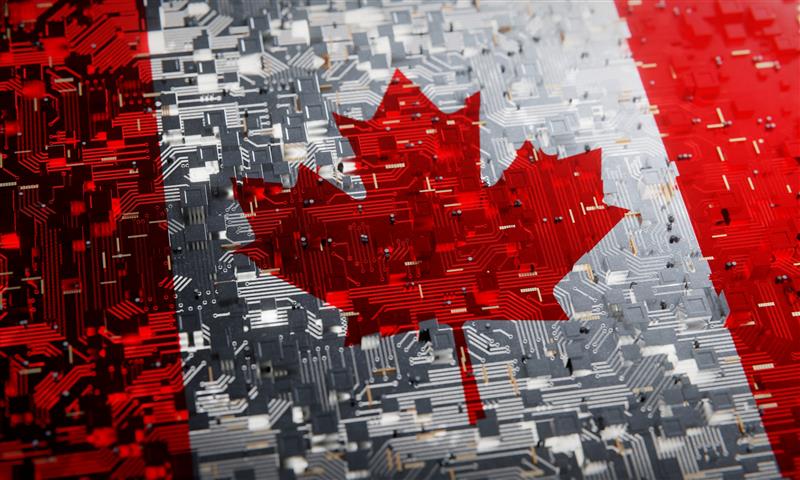Canada's DST Reversal: A Win for Big Tech, A Precedent for Others?
Created By :
Eshwar Yadagini
Is Canada paving the way for a global rollback of digital taxes? Or is this just the beginning of a tech-tax tug-of-war?

In a move that sent shockwaves through global trade and tech policy circles, Canada's recent decision to withdraw its proposed Digital Services Tax (DST) is both a significant win for major technology companies and a strategic olive branch to the United States. According to experts, the decision to scrap the tax—which would have impacted U.S. tech giants such as Amazon, Meta (Facebook), Alphabet (Google), and Apple—was a strategic move aimed at restarting trade talks with the United States and mitigating the risk of escalating tariffs, potentially setting a global precedent for similar tax reversals.
Need clarity on international tax rules? Connect with our advisors
But is this just a one-off concession, or are we witnessing a domino effect in the making?
The Backstory: Canada Steps Back, Tech Giants Cheer
Just days after reaffirming its commitment to the 3% DST on digital revenues exceeding CAD 20 million (approx. USD 14.6 million), Canada reversed course, shelving the tax altogether. This was no minor policy shift—it potentially saved major U.S. firms nearly $2 billion in retroactive charges.

The catalyst? Mounting pressure from the Trump administration, which responded to Canada’s tax stance by halting trade talks and threatening sweeping tariffs. President Trump referred to DST as a "direct and blatant attack on our country."
This sudden escalation quickly forced Ottawa to reconsider its position and Prime Minister Mark Carney announced: “We will always be guided by the overall contribution of any agreement to the best interests of Canadian workers and businesses.”
The move paid off. The U.S. swiftly re-engaged in trade discussions, and the tech industry, which has constantly criticized DSTs as "inappropriate" and "discriminatory", also welcomed the news.
However, experts suggest that Canada's concession could prompt other countries to reevaluate their own digital tax policies.
Gary Hufbauer, a non-resident senior fellow at the Peterson Institute for International Economics, believes the Trump administration’s move to "bully or cajole Canada" will make DSTs a major point of contention in future trade negotiations with Europe and beyond. He views this as a "harbinger of a more general repeal of digital services taxes" and a significant triumph for Trump.
And he's not alone. Industry groups such as the Computer and Communications Industry Association (CCIA) and the Information Technology and Innovation Foundation (ITIF) called the decision "encouraging" and "correct".
President Trump’s Tech Tax Crusade: America First, Tech First?
Since the beginning of his second term, President Donald Trump has been an outspoken critic of taxes and fines imposed on U.S. tech companies—viewing them as integral to America’s national interest and considering any foreign tax targeting them a direct affront.

Here’s a snapshot of his stance on the DSTs:
-
In January 2025, he accused the European Union of imposing "a form of taxation" through its substantial fines on American firms.
-
During a March meeting with the NATO secretary-general, President Trump labelled the EU "nasty" due to these tech fines and a tariff on U.S.-made cars, stating, "They’re suing Google, they’re suing Facebook, they’re suing all of these companies, and they’re taking billions of dollars out of American companies."
-
He has specifically targeted DSTs by signing an executive order in February 2025 that denounced them as "designed to plunder American companies" and declared that the U.S. would retaliate with tariffs or other actions.
Europe in the Crosshairs: Is the EU Next?
EU's Approach to Tech Taxation:
-
While the EU itself doesn't have a union-wide DST, several member states—such as France and Italy—along with the United Kingdom, have implemented their own versions.
-
The EU has enacted two significant tech laws: the Digital Services Act (DSA) and the Digital Markets Act (DMA).
-
These laws have already led to substantial fines against U.S. tech firms.
Recent EU Fines Against U.S. Tech Firms:
-
In September 2024, the European Union Court of Justice ordered Apple to pay over $14 billion in back taxes to Ireland.
-
A $2.7 billion fine against Google, levied by EU antitrust regulators seven years ago, was upheld by Europe’s top court in September 2024.
-
Meta (Facebook and Instagram's parent company) faced an $840 million antitrust fine in November 2024, followed by another $228 million penalty in April 2025.
-
Apple also faced a $570 million fine in April 2025.
Trade Negotiations and EU Laws:
-
A leaked draft agreement obtained by The Wall Street Journal in June 2025, suggested that the U.S. would engage in discussions with the EU on the DMA, potentially pausing its enforcement on American companies in the interim.
-
However, the European Commission, the EU’s executive arm, refuted claims that either the DSA or the DMA are part of the ongoing trade negotiations. Commission spokesperson Thomas Regnier explicitly stated, "Our legislation will not be changed. The DMA and the DSA are not on the table in the trade negotiations with the U.S."
-
Despite this stance, Gary Hufbauer remains cautiously optimistic. While he is sceptical of Trump's ability or desire to repeal the DSA and DMA, he believes that the UK and potentially the EU could still be pressured into withdrawing their DSTs.
Is Canada the Exception or the Blueprint?
While some analysts view Canada's move as pragmatic, others see it as a precedent with global consequences.
"Canada doesn’t want to die on this hill, so they’re going to move past it, and I think it’s a positive relative to getting some sort of deal framework done… But it also sets a blueprint for others that head down the path with the U.S." He added that Canada's concession "opens up a Pandora’s box, especially with the EU." — Dan Ives, Analyst, Wedbush Securities
Implications for Future Trade Talks and Tech Regulations
President Trump has already indicated his focus on the EU, recently suggesting that Canada's DST was "obviously copying" the bloc and that the issue is "currently under discussion."
Daniel Bunn, president and CEO of the Tax Foundation, suggested that the Trump administration could target Europe with Section 301 tariffs, which are import taxes designed to address unfair trading practices. Bunn noted, "There are findings from the first Trump administration and a specific executive order on digital services taxes that could lead to Section 301 retaliatory tariffs any day really. Those findings already exist. They’ve already checked the box on the procedure there. So, if they are interested in building momentum, then they have the opportunity to do so."
Meanwhile, President Trump continues to frame DSTs as “EU-style extortion” and is expected to keep up the pressure.
Final Thoughts: A Global Reckoning for Tech Taxation?
Will other nations fold like Canada? Or will they double down on tech regulation?
Canada may have blinked, but not everyone will. Edward Alden of the Council on Foreign Relations emphasized the country's vulnerability—75% of its exports go to the U.S., giving Washington immense leverage. However, he argued, "The Europeans are in a much stronger position. They have a market that’s collectively roughly the size of the U.S. market. Their retaliation has some significant effects on U.S. companies."
While Canada’s U-turn may seem like a local story, its implications are global. This move could also embolden tech companies to resist these taxes. According to Alden, rather than viewing Trump's trade policies as disruptive, companies might see them as "a potential tool to tackle some foreign practices they dislike.”
Whether this recent move reshapes digital taxation or triggers a trade war will depend on the coming weeks of diplomacy, power plays, and policy pivots.
Stay tuned. The battle over Big Tech taxation has only just begun.
To know more about the intricacies of cross-border taxation, please feel free to reach out to us at info@akmglobal.in.